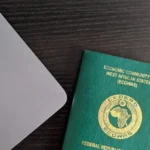An outspoken retired professor became the latest victim of China’s controversial exit ban which critics termed as “political persecution” in retaliation for her criticism of the communist regime’s policies, says a report.
Guo Yuhua, a former professor of sociology at Tsinghua University, and her husband were denied permission by border security personnel in Shenzen to visit Hong Kong despite possessing a valid travel permit, Radio Free Asia (RFA) reported on May 8.
Beijing-based independent journalist, Gao Yu, said Guo was not allowed to leave and was stopped at the border.
“When she [Guo] asked why, they showed her a document issued by the Beijing municipal police department placing an exit ban on her,” Gao said.
Gao added that “she [Guo] believes that … [this] is unreasonable and illegal.”
Guo was among a group of high-profile individuals who signed an open letter in October 2020 calling for the release of Geng Xiaonan.
“The amendment enables the use of exit bans on both Chinese and foreign nationals”
Geng was jailed for three years in February 2021 on charges of “illegal business operations” after she publicly supported Tsinghua alumni and dissident Xu Zhangrun.
The exit ban on Guo came just days after China amended its counter-espionage law.
The amendment enables the use of exit bans on both Chinese and foreign nationals being investigated on “national security” charges, or on Chinese nationals deemed a “potential threat to national security” if they are allowed to go overseas, RFA reported.
Gao alleged that Guo’s public support for Xu in defiance of Chinese Communist Party policies was a possible cause for the exit ban.
“She has always espoused universal values [like freedom and democracy] and has exposed a lot of injustice in China,” Gao said.
“She was the only person at Tsinghua to speak up in support of Xu Zhangrun and was hauled in by [university authorities] for it,” Gao added.
According to reports, Guangdong province in China which is home to many border crossings has prevented several rights activists from leaving the country citing the exit ban.
Chinese rights lawyer Tang Jitian, and activist Guo Feixiong were both prevented from leaving China to take care of a dying relative.
Wang Yu, a Beijing-based human rights lawyer said that anyone regarded by the communist regime as a threat to the system was targeted irrespective of their intent.
“Anyone they see as being harmful to the system will be persecuted in various ways, despite the fact that all we ever wanted was to help this country develop in a good direction,” Wang told RFA.
“China engaged in widespread misinformation campaigns to lure back those who had taken political asylum in other countries”
The victims of the retaliatory exit ban include rights activists, family members of Chinese dissidents who have moved overseas, Tibetans, Uyghurs, other ethnic groups, and foreign journalists.
Liu Lipeng, a former government censor alleged that China engaged in widespread misinformation campaigns to lure back those who had taken political asylum in other countries stating that they had no threat when they return.
“There were rumors in Chinese circles in the United States that there was no risk in going back to China for certain people who had applied for political asylum,” RFA quoted Liu as saying.
Liu alleged that those who visited their family and friends in China believing the rumors were detained and their passports were confiscated by the authorities.
“They can’t leave [China] now, despite having a green card,” Liu said further adding that the situation is “very worrying to hear.”
Spain-based rights group, Safeguard Defenders, in a recent report, decried a slew of changes to around 15 laws in China since 2018 that allowed the widespread use of exit bans.
Between 2016 and 2020, there was an eightfold increase in the number of cases where exit bans were mentioned in the Chinese Supreme Court’s legal database, the report said.
A study published last year cited by Safeguard Defenders also found that 128 foreigners — including 29 Americans and 44 Canadians — were slapped with exit bans between 1995 and 2019.
According to Safeguard Defenders, China targets a wide range of people with exit bans.
This includes criminal suspects, military personnel, ethnic-religious groups, foreign journalists, party and state officials under investigation for graft, their family members, and anyone caught up in a civil dispute.
New York-based Human Rights Watch however alleged that Tibetans and Uyghurs have been subject to exit bans and tight controls on passport applications since 2002.
Reportedly, “applying for a passport” was listed as a potential reason to imprison a person in one of the mass incarceration camps in the Uyghur Muslim-majority Xinjiang region.
Source: UCA News

 Join Daily Trust WhatsApp Community For Quick Access To News and Happenings Around You.
Join Daily Trust WhatsApp Community For Quick Access To News and Happenings Around You.


